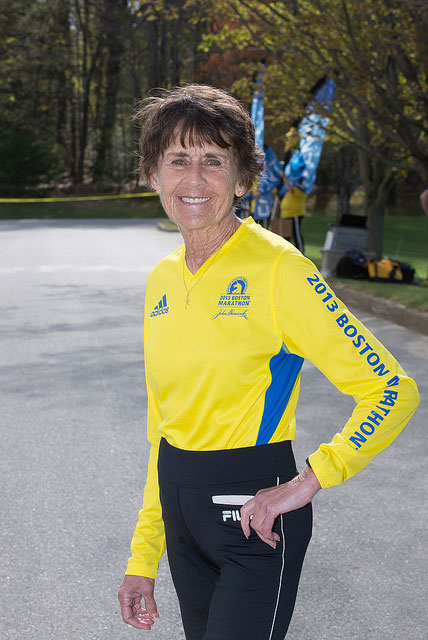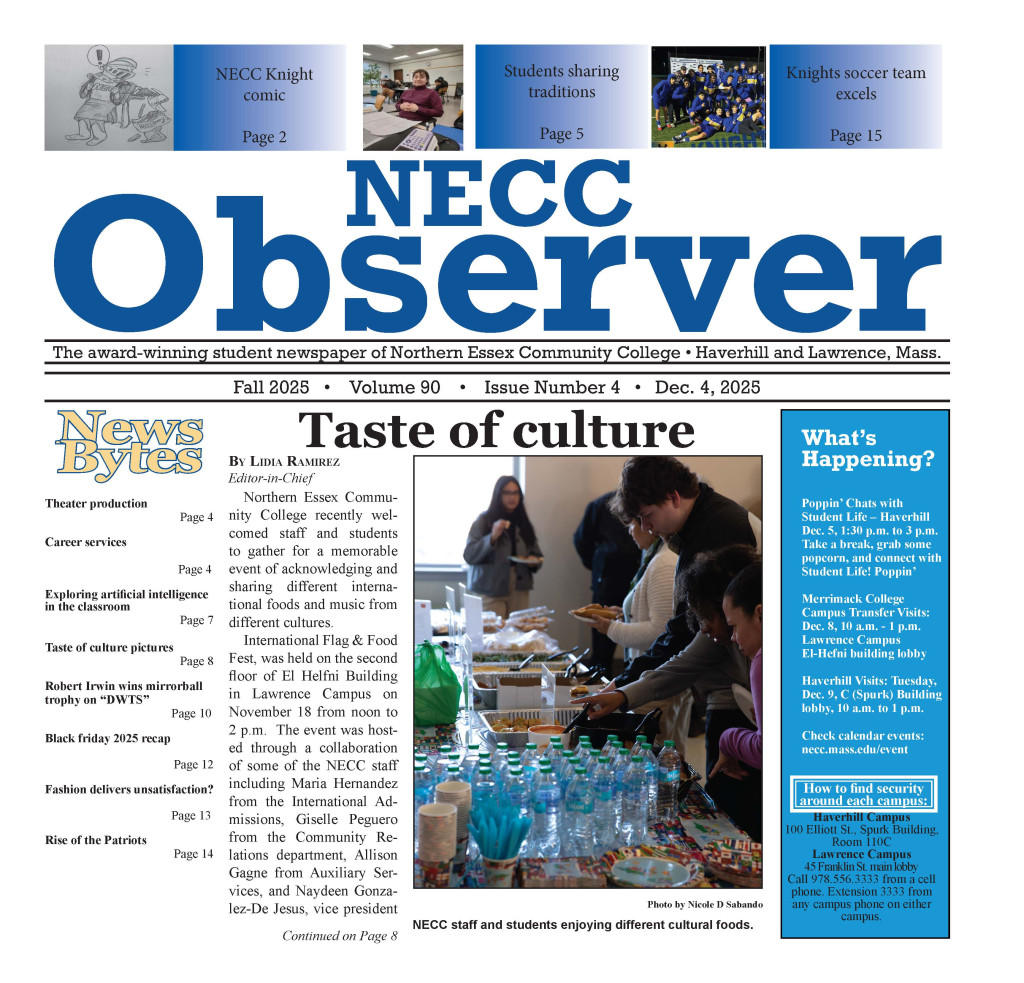
The tragedy of the 2013 Boston Marathon bombings is something that hasn’t been wasted on those affected by it. Runners that day were thrown into a warzone. It was well documented that people who had just run 26.2 miles continued on to hospitals to donate blood. The City of Boston shut itself down to pursue two suspects in relation to the bombing.
NECC professor Linda Desjardins ran in both the 2013 and 2014 Boston Marathons. In fact, the 2014 race was her seventh Boston Marathon, and her 14th marathon in total. Running has always been something that Desjardins used to get away and to feel free.
“I started running in 1977. I ran four marathons in between ‘81-’83,” said Desjardins. “Then I stopped competing altogether, but I kept running.”
In fact, when she turned 60, she decided to run a half marathon just because it was a nice day out. She signed up the day of the race and surprised herself with how she did. “ I didn’t think anything of it and I ended up winning my age group,” she said.
2014 was a different environment than past Boston Marathons. Desjardins said that security made the event feel more strict and tight than it had in years past. “We couldn’t carry any kind of bags. We could only have what we were wearing,” she said. “You couldn’t check a bag with things you might want like a cell phone, a jacket, your car keys; you had to keep it on you. There were security checks to get on the bus, to get off the bus and to get in to Runner’s Village.”
What the race added in security, it more than made up for in support. Once Desjardins hit the ground running, she said the crowd was incredibly supportive. “This was my seventh Boston, and I have never, never seen so many people,” she said. “It was like being in a big parade for 26 miles because people were 10, 20, 30 deep in key areas. It was incredibly well supported.”
In 2013, Desjardins was stopped short six-tenths of a mile before the finish line. She had completed more than 25 miles before the bombing had forced her to stop short. When she got to that spot this year, Desjardins said she expected to cry.
“I thought when I got to where I was stopped last year I was going to burst out crying,” she said.
“I was thinking, ‘How can I run and cry at the same time? I don’t know if I can.’
“When I hit that spot, I was all prepared to be sad, but instead I got the biggest smile on my face and I couldn’t wipe it off,” she said. I just thought, ‘I’ve got this! I’m finishing this, and I’m finishing in style!’”
Desjardins will never forget the tragedy of the 2013 race; it would be impossible to. However, with the running of the 2014 race and all of the people there in support, it’s easier for her to look forward.
“I didn’t think it was going to provide closure, but it really did,” said Desjardins. “Like, 2013 is in the past. I’m going to remember it, but it’s not going to hang over me like a dark cloud like it has over the past year. I feel like I ran past it. I feel like we took back our marathon, I really do.”


